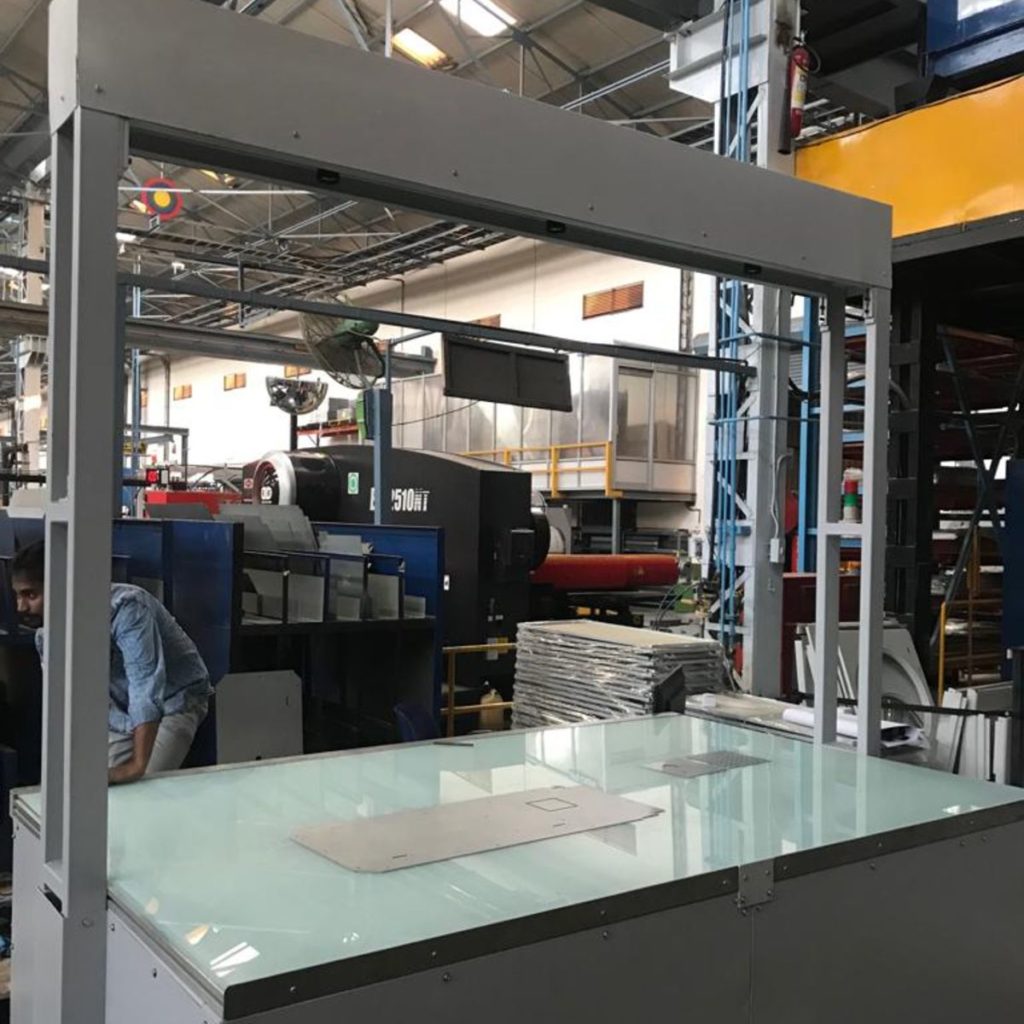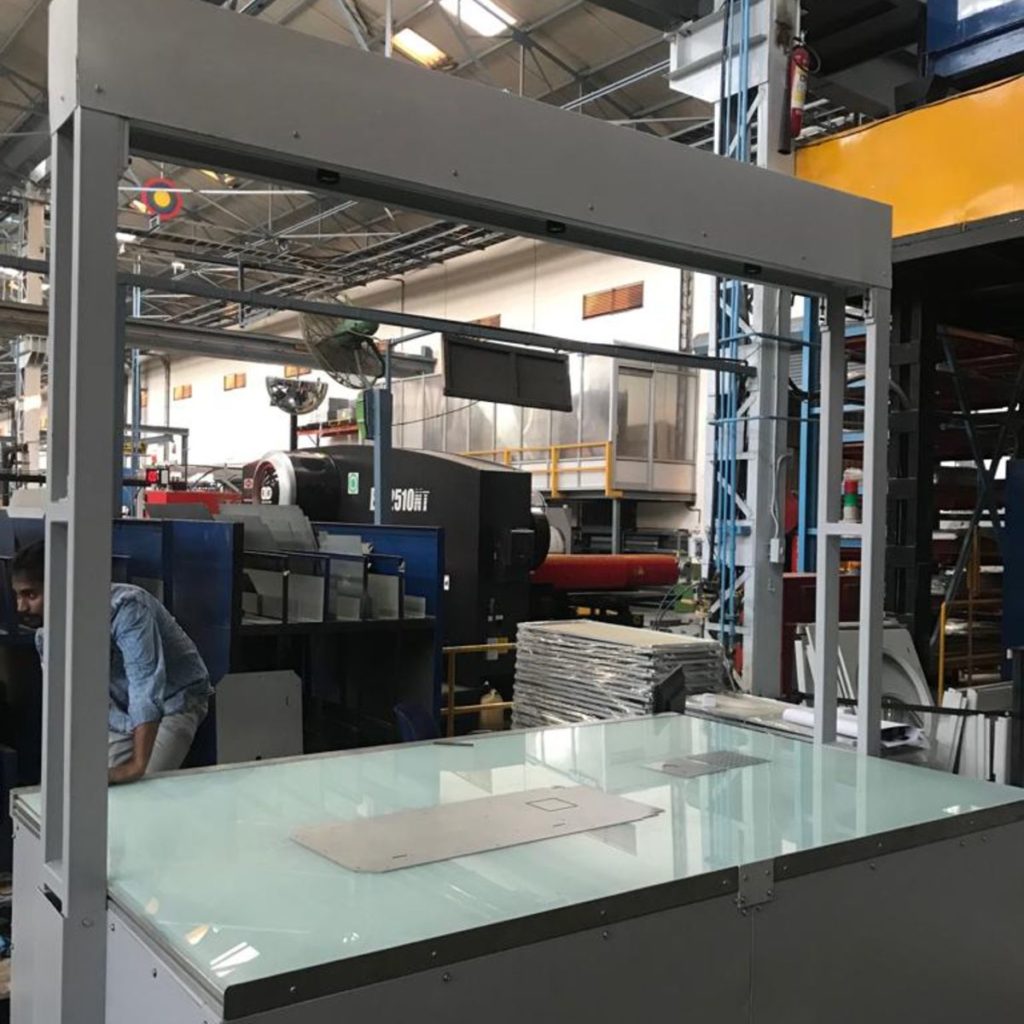As Add Innovations engineers travel the country installing and commissioning vision systems, we frequently get asked if automation is responsible for the ongoing jobs crisis across India. Does the growth of companies such as ours lead to large scale lay-offs in the pursuit of more productivity?

The answer: Automation IS responsible for large scale increase in unemployment in India’s agricultural sector. However, it is quite the opposite in the manufacturing sector – where automation has been improving quality, diversifying offerings, and increasing market share for India’s manufacturers. This is especially true for small and medium enterprises in tier-2 and 3 cities. SMEs who embrace automation have seen a marked difference in their offerings, and added millions to their payrolls.
Large scale unemployment is driven by agriculture sector, not manufacturing.

Source: www.statista.com
The driver of the crisis is job losses in agriculture, not manufacturing. Over the past 10 years, the share of agriculture to workforce has declined by 11%. This is driven by automation where tractors, seeders, weeders etc have resulted in a reduction of required unskilled manpower in small farms. In a largely agrarian society like India, these numbers translate to millions of jobs lost. The share of manufacturing in the workforce on the other hand has actually increased over this period.
Rural unemployment is triggering large scale migration to the metros
One extreme result of rural agrarian unemployment is large scale exodus to India’s metros which are bursting at the seams. Estimates for internal migrants are close to 150 million. Traffic congestion in Bengaluru, drinking water scarcity in Chennai, unaffordable property prices in Mumbai or pollution in NCR can all be tied back directly to this population explosion in the metros.

Quality manufacturing to the rescue!
High quality manufacturing, backed by automation is part of the solution to both these problems.
Technology and automation is making Indian manufacturing SMEs more competitive
Offerings, productivity and quality of Indian manufacturers are increasing by leaps thanks to technology and automation. This is placing them to finally meet the demands of India’s vast consumer market, and reducing our reliance on Chinese imports.
If you go to amazon.in and search for projectors (for example), you will see that most of the best selling models are Indian made. Not just that, they proudly advertise it:

This in turn open new markets and opportunities and lead to many fold increase in employment.
Most SMEs are based in tier2 and 3 cities, employing locals, and reversing migration trends
Take a look at the locations of our last several installations from 2018 and 19:
- Manesar, Haryana for Tasa Automotive Components
- Vapi,Gujarat for Bluestar
- Sonipat, Haryana for JSG Innotech
- Faridabad,Haryana for Shivani Locks
- Wada, Maharasthra for HVAC manufacturer
These are all tier2 and 3 cities and employ all local workforce. It’s hard to imagine when you are stuck in a traffic jam in Delhi, but the fact is that largescale spending on highways over the last decade have improved connectivity to these cities by leaps. Now if you are a start-up in Bengaluru, or an online platform warehouse in Noida, it is easy to fulfill your orders easily by using these SMEs.

Manufacturing is one of the few sectors capable of generating large scale employment
In conclusion, technology and automation in manufacturing has the scope to absorb the large scale layoffs happening in agriculture. Manufacturing by SMEs in tier 2 and 3 cities are leveraging improved infrastructure, vast market potential, and cheap locally available labour to move higher up in the manufacturing food chain. In addition to employment, this also has the scope to reverse urban migration, and lead to more sustainable population centers. It is time to use technology and automation to help this trend.
About Add Innovations:
Add Innovations is a Delhi-NCR based technology company with products and services in industrial vision systems. Our systems are used to automate inspections and to improve quality at production lines across India, especially by SMEs. More information at www.addinnovations.in

